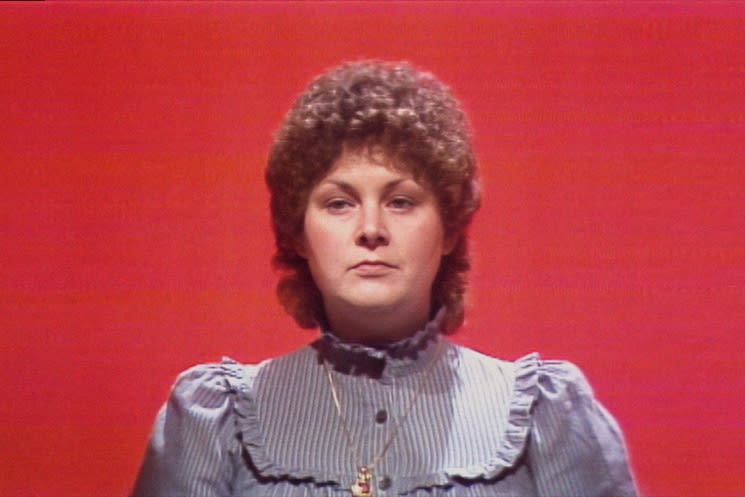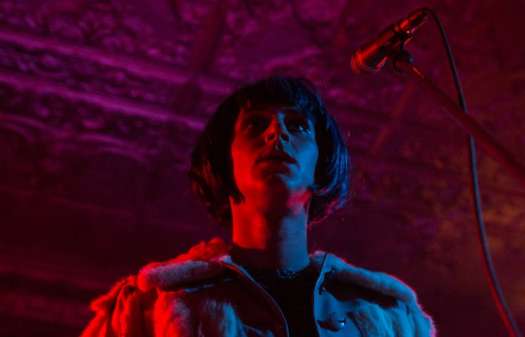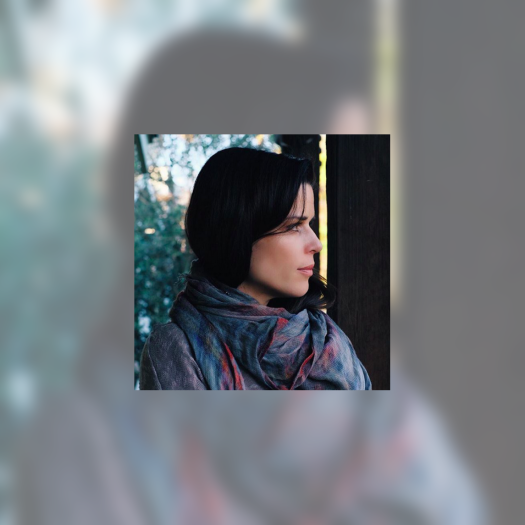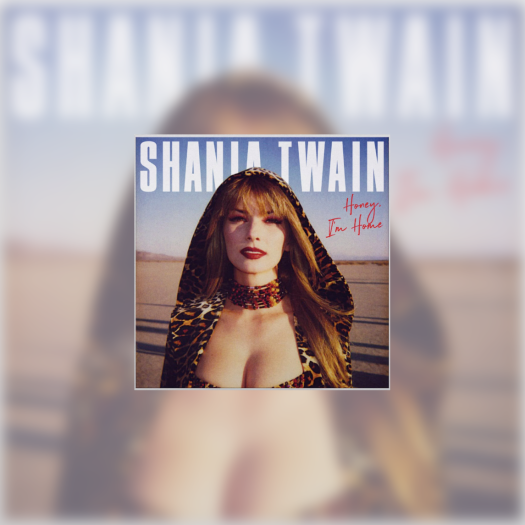Satanic panic seems almost laughable now — but in the 1980s, it was a huge force in shaping pop culture. Its influence largely stemmed from Michelle Remembers, a since-discredited memoir by Victoria, BC-based author Michelle Smith, who, with the help of her therapist and co-writer, told a graphic tale of her childhood spent being tormented by a cabal of devil worshippers. The book went on to reportedly sell millions of copies and was the catalyst for two decades of unfounded hysterics. The new documentary Satan Wants You, written and directed by Sean Horlor and Steve J. Adams, begins to pull at the threads of this dubious story.
I've walked the streets of Victoria multiple times, and it seems unlikely that the photogenic tourist town was rife with Satanic cults. But with the encouragement of her therapist and the support of the Catholic Church, Michelle took her story of ritual satanic abuse mainstream. With each public appearance, Smith's tales got taller: ritual sacrifice, summoning Beelzebub himself and the bizarre yet oft-repeated act of children being eaten. An abject farce, it continued to feed the fires of pop culture panic.
Satan Wants You does a thorough job of detailing events, presenting a saga so comically macabre one would expect Bruce Campbell to make an appearance. In the spirit of the film, we take a look back on what Satanic panic inspired in pop culture — besides widespread hysteria.
Backmasking
"I know that the Lord is coming soon"
Backmasking is the technical term for music that was recorded backwards in order to disguise a hidden message or melody on an LP. A listener can simply use their hand to rotate a record in reverse on a turntable to hear this Easter egg and let the fun begin. Of course, musicians couldn't resist putting naughty content on their albums to antagonize parents and priests — and, sure enough, The Man got involved. There was uproar in the pews, court cases and congressional hearings. Producer Steve Albini recently shared a superb tweet thread about this exact thing.
The whole scandal was predictably goony and typical of the Satanic Panic movement. There ven included a plot twist thanks to Prince: devout Jehovah's Witness, he actually used backmasking to slip in a pro-God plug on 1984's "Darling Nikki." The Lord works in mysterious ways.
Canada's Obscene Punks
"Their paranoia is here to stay"
We can't talk about Michelle Smith and Satan Wants You without mentioning Victoria's own Dayglo Abortions. Their debut album came out one year after Michelle Remembers hit bookstands, and this irreverent punk music seems like an obvious response to it. The cartoonish lyrics touch upon eating kids and killing parents, and at some point these Canadian skate/thrash pioneers were dragged to Ottawa on Obscenity Charges. "Religious Bumfucks" from their utterly absurd Feed Us a Fetus LP has them enjoying a grand time fantasizing about the Satanic panic.
D.A.R.E.
"I'll never forget what they did, I was brainwashed as a kid"
Recreational drugs also endured a similar witch-hunt-style hysteria — after all, they call it the Devil's lettuce for a reason, right? At the height of the satanic Panic, school kids were subjected to hours of "Drug Abuse Resistance Education" dogma from local police and other puritanical figures in the community. The D.A.R.E. program still exists in parts of Canada and the US, and is probably just as weird now as it was then. No Trigger just recently blasted this anti-indoctrination ditty from the stages of Montreal's Pouzza Fest, and boy, did the punks love it.
Dungeons & Dragons
"That was by far the best time that we ever had"
With all due respect to the beguiling practice of eating babies, skateboarding and listening to Judas Priest, nothing riled up the overzealous PTA moms like Dungeons & Dragons — the true lynchpin of the Satanic panic. Just as the frenzy over Satanism was growing in intensity around the world in the 1980s, the roleplaying game came under fire by zealous religious groups who must have believed that D&D stood for Devils & Demons. Tensions came to a head when a grieving mother blamed her son's suicide on the game and attempted to sue the makers of D&D, as well as her son's school principal for allegedly placing a curse on her son's character. She formed BADD (Bothered About Dungeons and Dragons) and launched a smear campaign against the game, warning the public of the game's occult ways.
Of course, the allegations against D&D didn't take, and it continues to be enjoyed by millions around the world.
West Memphis Three
"They take the rights away from all the kids"
By the time the '90s rolled around, the hysteria around Satanism had mostly subsided and been debunked — except for places like Arkansas, where reactionary crusaders could still have a Metallica-T-shirt-wearing folks jailed. At least, that's what happened to the West Memphis Three, a 1994 case where three men were found guilty of killing three boys, supposedly as part of a Satanic ritual. The case was controversial for a number of reasons, including bias surrounding the defendants. After the introduction of improved forensic evidence and changing witness testimonies, the defendants were released from prison, and they continue to push for full exoneration to this day.
The West Memphis Three incited a necessary change. The goths and headbangers had suffered enough persecution, and there was sufficient pushback from artists, musicians and members of the public. Multiple benefit compilations were released to raise awareness about the West Memphis Three, including a rare Misfits cover from Seattle's Murder City Devils. Henry Rollins was also one of the most outspoken people involved in their legal appeals, even getting Ice-T to sing on a Black Flag cover for the Rise Above benefit compilation in 2002.
I've walked the streets of Victoria multiple times, and it seems unlikely that the photogenic tourist town was rife with Satanic cults. But with the encouragement of her therapist and the support of the Catholic Church, Michelle took her story of ritual satanic abuse mainstream. With each public appearance, Smith's tales got taller: ritual sacrifice, summoning Beelzebub himself and the bizarre yet oft-repeated act of children being eaten. An abject farce, it continued to feed the fires of pop culture panic.
Satan Wants You does a thorough job of detailing events, presenting a saga so comically macabre one would expect Bruce Campbell to make an appearance. In the spirit of the film, we take a look back on what Satanic panic inspired in pop culture — besides widespread hysteria.
Backmasking
"I know that the Lord is coming soon"
Backmasking is the technical term for music that was recorded backwards in order to disguise a hidden message or melody on an LP. A listener can simply use their hand to rotate a record in reverse on a turntable to hear this Easter egg and let the fun begin. Of course, musicians couldn't resist putting naughty content on their albums to antagonize parents and priests — and, sure enough, The Man got involved. There was uproar in the pews, court cases and congressional hearings. Producer Steve Albini recently shared a superb tweet thread about this exact thing.
The whole scandal was predictably goony and typical of the Satanic Panic movement. There ven included a plot twist thanks to Prince: devout Jehovah's Witness, he actually used backmasking to slip in a pro-God plug on 1984's "Darling Nikki." The Lord works in mysterious ways.
Canada's Obscene Punks
"Their paranoia is here to stay"
We can't talk about Michelle Smith and Satan Wants You without mentioning Victoria's own Dayglo Abortions. Their debut album came out one year after Michelle Remembers hit bookstands, and this irreverent punk music seems like an obvious response to it. The cartoonish lyrics touch upon eating kids and killing parents, and at some point these Canadian skate/thrash pioneers were dragged to Ottawa on Obscenity Charges. "Religious Bumfucks" from their utterly absurd Feed Us a Fetus LP has them enjoying a grand time fantasizing about the Satanic panic.
D.A.R.E.
"I'll never forget what they did, I was brainwashed as a kid"
Recreational drugs also endured a similar witch-hunt-style hysteria — after all, they call it the Devil's lettuce for a reason, right? At the height of the satanic Panic, school kids were subjected to hours of "Drug Abuse Resistance Education" dogma from local police and other puritanical figures in the community. The D.A.R.E. program still exists in parts of Canada and the US, and is probably just as weird now as it was then. No Trigger just recently blasted this anti-indoctrination ditty from the stages of Montreal's Pouzza Fest, and boy, did the punks love it.
Dungeons & Dragons
"That was by far the best time that we ever had"
With all due respect to the beguiling practice of eating babies, skateboarding and listening to Judas Priest, nothing riled up the overzealous PTA moms like Dungeons & Dragons — the true lynchpin of the Satanic panic. Just as the frenzy over Satanism was growing in intensity around the world in the 1980s, the roleplaying game came under fire by zealous religious groups who must have believed that D&D stood for Devils & Demons. Tensions came to a head when a grieving mother blamed her son's suicide on the game and attempted to sue the makers of D&D, as well as her son's school principal for allegedly placing a curse on her son's character. She formed BADD (Bothered About Dungeons and Dragons) and launched a smear campaign against the game, warning the public of the game's occult ways.
Of course, the allegations against D&D didn't take, and it continues to be enjoyed by millions around the world.
West Memphis Three
"They take the rights away from all the kids"
By the time the '90s rolled around, the hysteria around Satanism had mostly subsided and been debunked — except for places like Arkansas, where reactionary crusaders could still have a Metallica-T-shirt-wearing folks jailed. At least, that's what happened to the West Memphis Three, a 1994 case where three men were found guilty of killing three boys, supposedly as part of a Satanic ritual. The case was controversial for a number of reasons, including bias surrounding the defendants. After the introduction of improved forensic evidence and changing witness testimonies, the defendants were released from prison, and they continue to push for full exoneration to this day.
The West Memphis Three incited a necessary change. The goths and headbangers had suffered enough persecution, and there was sufficient pushback from artists, musicians and members of the public. Multiple benefit compilations were released to raise awareness about the West Memphis Three, including a rare Misfits cover from Seattle's Murder City Devils. Henry Rollins was also one of the most outspoken people involved in their legal appeals, even getting Ice-T to sing on a Black Flag cover for the Rise Above benefit compilation in 2002.




